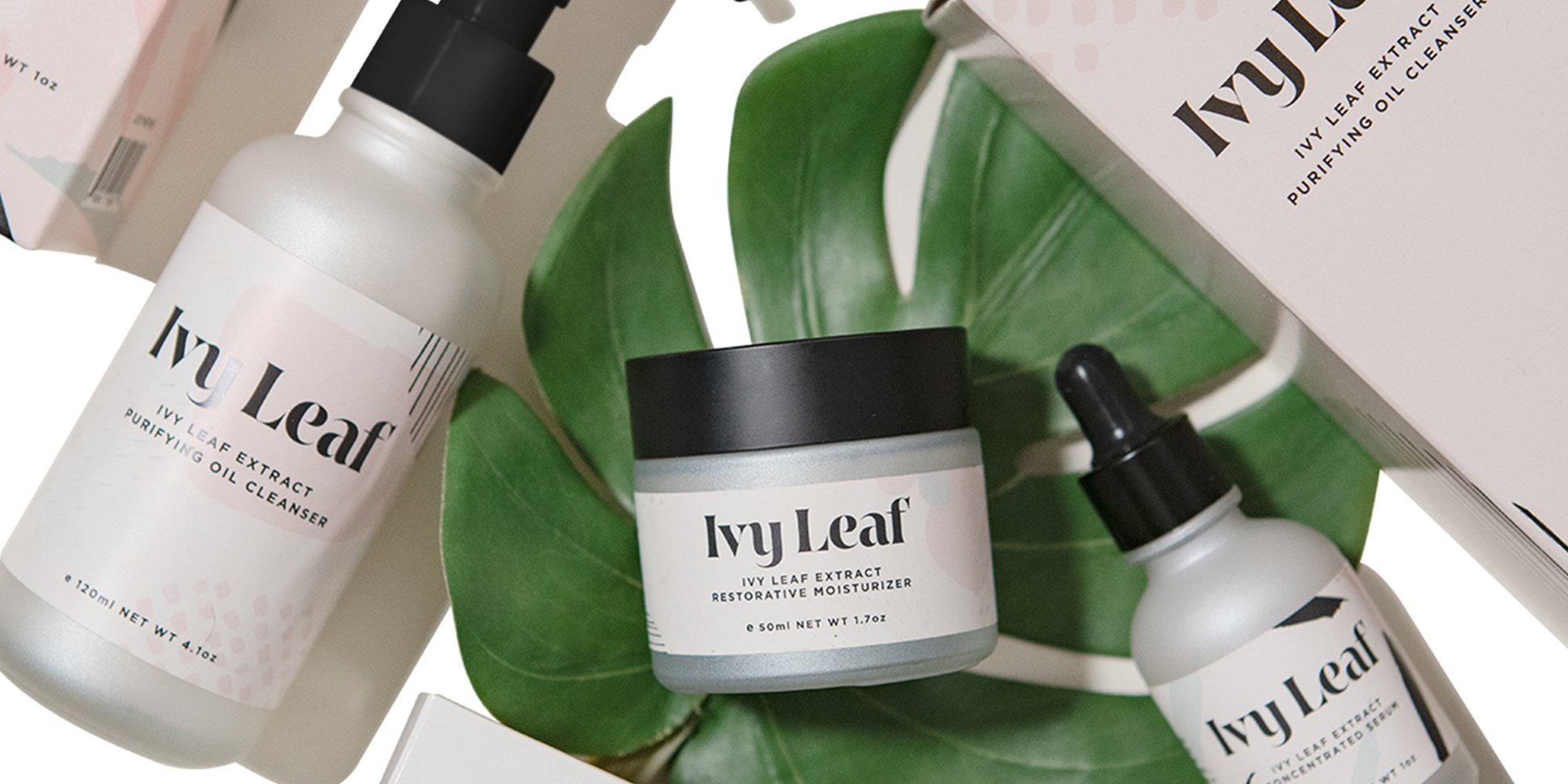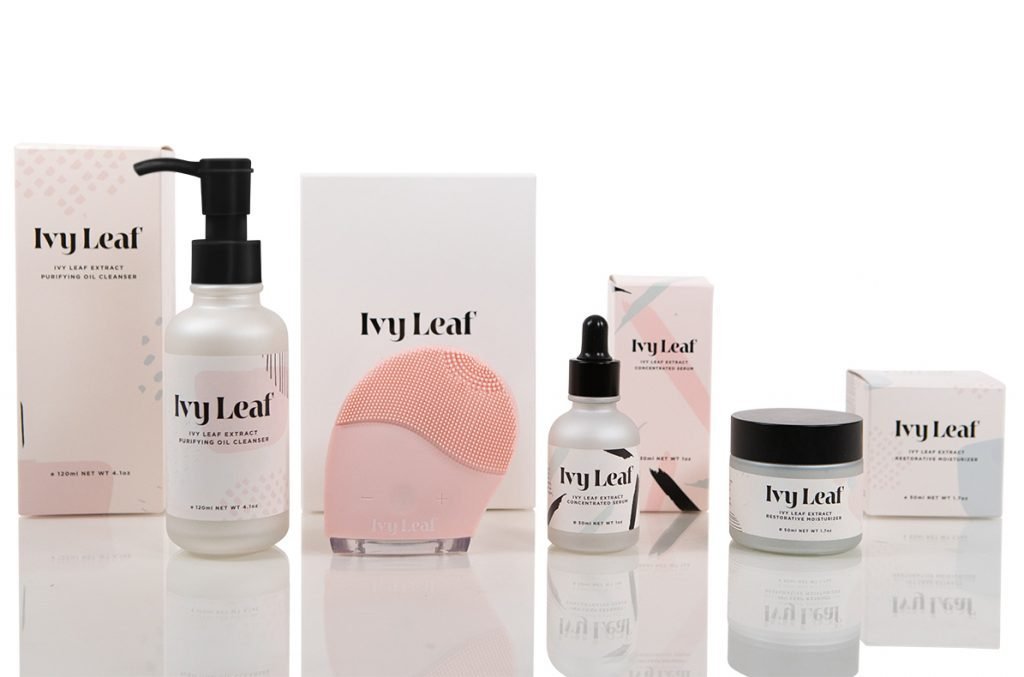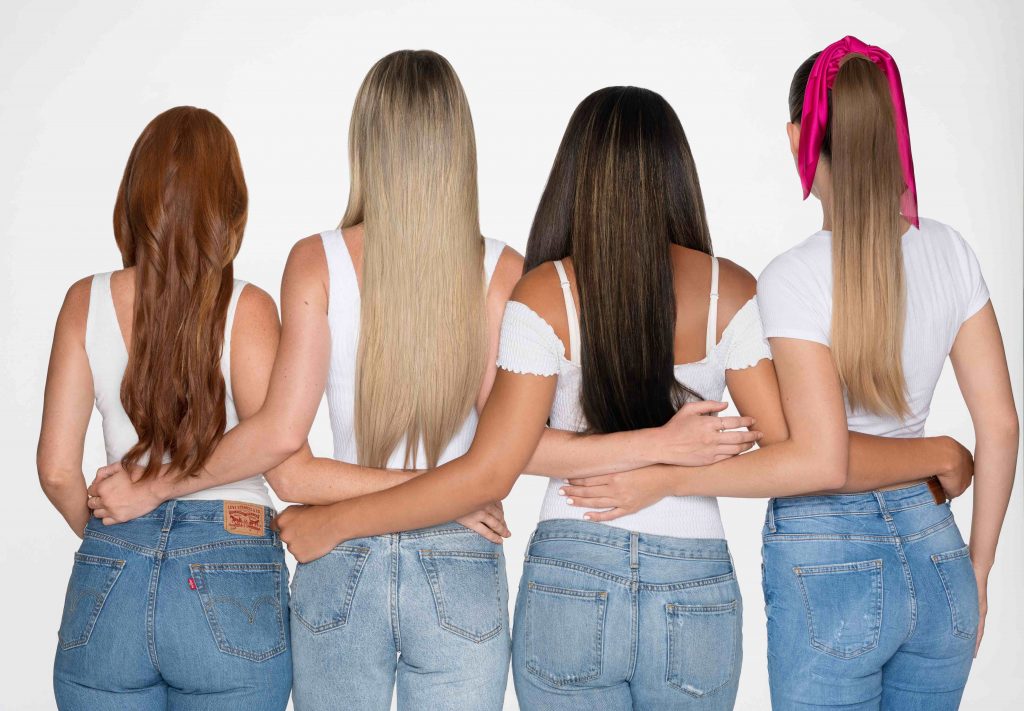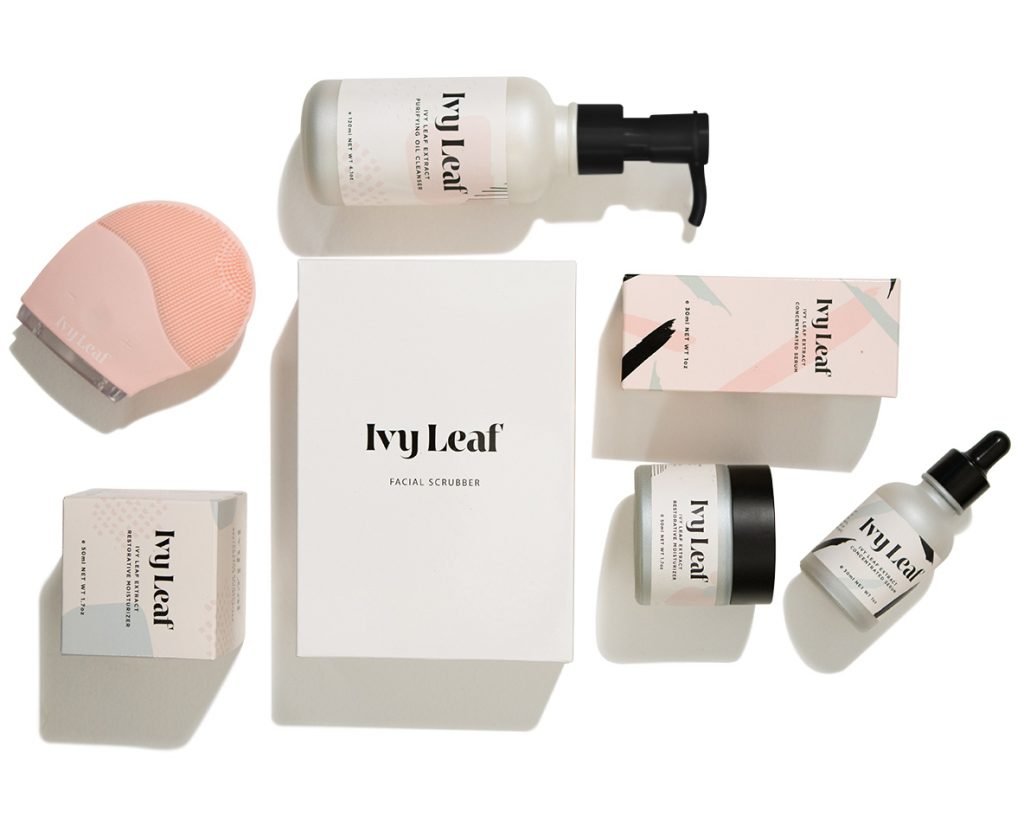
This Emerging Brand Incubator Is Tenaciously Going After Gaps In The Beauty And Wellness Market
There are thousands upon thousands of beauty, personal care and wellness brands selling products, but Basis believes there remains plenty of gaps in the market—and the e-commerce brand incubator is out to fill them.
Within the last three weeks, the San Diego-based company has launched Ivy Leaf, a plant-driven skincare line powered by South Korean technology, and synthetic hair extension specialist Untangled. The brands join smart toothbrush purveyor AutoBrush and Keto-friendly supplement resource The Core in Basis’s portfolio. The goal is for the four brands to reach $10 million to $15 million in sales each by the end of next year and keep them progressing at an annual growth rate of 30% in subsequent years.
“In an ideal situation, we would love to be a massive holding company like P&G where maybe we have only these four brands for the rest of the life of company or maybe we would have 10, and they have their own individual teams,” says Nikki Johnson, brand director at Basis. “Today, we have a group of 14 people working on all the brands, but I see us building individual teams for the brands as we hire and expand.”

Christopher Lander started Basis in 2014 to assist brands with social media advertising campaigns, but the firm recently pivoted to spearhead its own brands along with servicing external players. In January, it recruited around six people, including Johnson, from BVAccel, an e-commerce agency with Kopari Beauty, Untuckit, Good American Denim and Beauty Bakerie on its client roster, to nurture in-house brands.
Released in October, AutoBrush is the biggest of the four beauty, personal care and wellness brands under Basis’s umbrella, and Johnson expects it to stay the biggest. In a two-month span, the brand blew through 10,000 units of its kid’s electric toothbrushes that are shaped to brush all teeth at once while playing music. Due to its success with kid’s items, the brand is doubling down on its family positioning. Johnson foresees Ivy Leaf and Untangled becoming the next-biggest brands with The Core being the smallest in the Basis brand stable.
“We’ve chosen to develop products out of a need,” says Johnson. “In skincare, we knew there was this gap where a lot of brands weren’t giving you transparency, and no one is using ivy leaf now. With our toothbrush company, we’re trying to change the way people see brushing their teeth, especially kids. We want it to be a fun activity and not a chore.”
“In an ideal situation, we would love to be a massive holding company like P&G.”
Basis began the process to create Ivy Leaf nine months ago. It teamed up with a South Korean chemist to identify ingredients and construct the formulas. On its website, the brand spells out the ingredients and their purposes for its customers, primarily women aged 23-years-old to 45-years-old seeking to make healthy choices, but without excess minutes to extensively research every ingredient on a label. Its star ingredient, hedera helix leaf extract or ivy leaf extract, was selected for its anti-inflammatory, hydrating and cellulite-busting attributes.
The brand’s assortment consists of the $55 Restorative Moisturizer, $55 Concentrated Serum, $45 Purifying Oil Foaming Cleanser and $40 Facial Scrubber. Since Ivy Leaf went live nearly three weeks ago, almost 90% of its sales have involved the $130 Complete 3 Step Routine set containing the cleanser, serum and moisturizer. The brand throws in a facial scrubber for free with the purchase of the set.
Johnson mentions Ivy Leaf’s cleanser is a favorite of the women in Basis’s office. “If you are wearing a full face of makeup, it’s very hard to find a product that removes all our makeup when you wash at night. It actually removes mascara and eyeliner,” she says. “When you wipe your face with a towel at the end, it doesn’t leave all your makeup on it.”

Untangled arose from a search for ethical human hair extensions. “We ended up finding out there’s no regulations or standards for human hair exensions,” says Johnson. Lacking regulation, the hair extension industry is riddled with exploitative practices. Poor women often in devastated conflict zones are attacked and their hair is cut off or they’re paid a pittance to fuel a multibillion-dollar global trade. Johnson says, “There’s a lot of abuse that happens when it comes to sourcing human hair extensions. Untangled came from a need to educate people. It’s a passion for us.”
Untangled’s synthetic hair extensions range mostly from $55 to $75 depending on the length, weight and color. “We went through numerous manufacturers to find high-end synthetic fiber hair extensions. They can be heated, which means you can use your hair tools on them, and they don’t feel plasticky and fake,” says Johnson, adding the brand’s target demographic is women aged 24- to 35-years-old. “These women don’t know where their hair extensions are coming from, and they don’t want to be part of the problem, they want to be part of the solution. We just want to make a difference. Even if we could change the way 10 people are buying hair extensions, we will take those 10 people any day.”
Basis crafted Ivy Leaf’s and Untangled’s packaging to look good at the times their products aren’t in use. The designers Annie Grandon and Jamison Reisbeck gave Ivf Leaf abstract patterns in black, and muted blue and blush. “We didn’t want every package to be printed the exact same,” explains Johnson. “Everybody is different, and we want people to feel they are beautiful regardless of who you are, and we don’t want people to feel they have to conform to a specific type of person.”
“There was this period where people were saying retail is dead, but I generally don’t believe that, and I have never believed that.”
Untangled’s synthetic hair extensions arrive at customers’ homes in clear, grayish blue or yellow zipped bags that can be held up to the head prior to opening. Once they’re opened, the extensions can’t be returned. They are shipped in a hard, yellow magnetic box for storage. “We want women to feel comfortable leaving it out and not to worry about hiding it if guests come over,” says Johnson. Reisbeck collaborated with designer Tara Avery on Untangled’s packaging.
Aimed at consumers 30-years-old and above, The Core has its collagen powders, BHB capsules, and hair, skin and nail gummies available on Amazon for $25 to $45. AutoBrush is on Amazon, too, and Untangled and Ivy Leaf will enter the Amazon fray, but The Core has the strongest focus on Amazon among the brands. “For any brand, if you are not on Amazon or trying to be on Amazon, you are not doing it right,” says Johnson. “Other brands who are your competitors can bid on your key words and get your business, so you might as well be there.”
E-commerce and social media are certainly Basis’s expertise, and the firm is ramping up its micro-influencer program to spread the word about Untangled and Ivy Leaf. However, Johnson envisions the brands having extensive retail presences to complement their digital operations. She points to the retailers Sephora, Ulta Beauty, Anthropologie and Free People, and subscription boxes Birchbox, Ipsy and FabFitFun as on Ivy Leaf’s distribution wish list.

“I’ve been in the e-commerce world now for nine years, and there was this period where people were saying retail is dead, but I generally don’t believe that, and I have never believed that,” says Johnson. “Do I believe the best strategy for these brands is strictly online or in retail? No, it’s going to be a combination of the two. You will always find people who prefer to shop in store versus online.”





Leave a Reply
You must be logged in to post a comment.